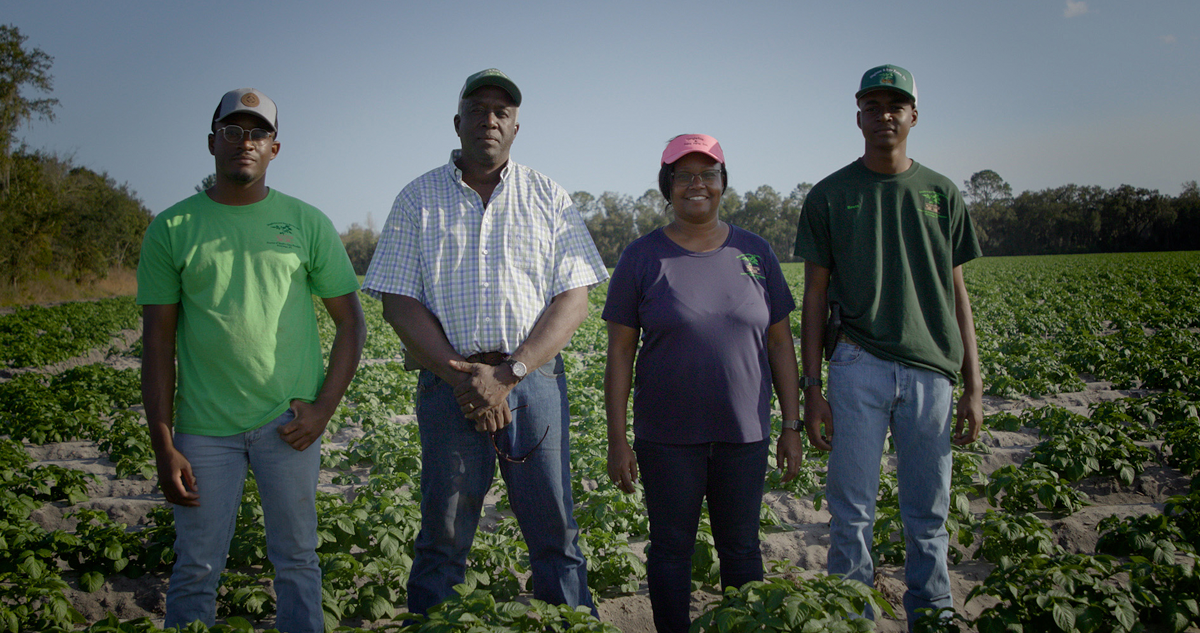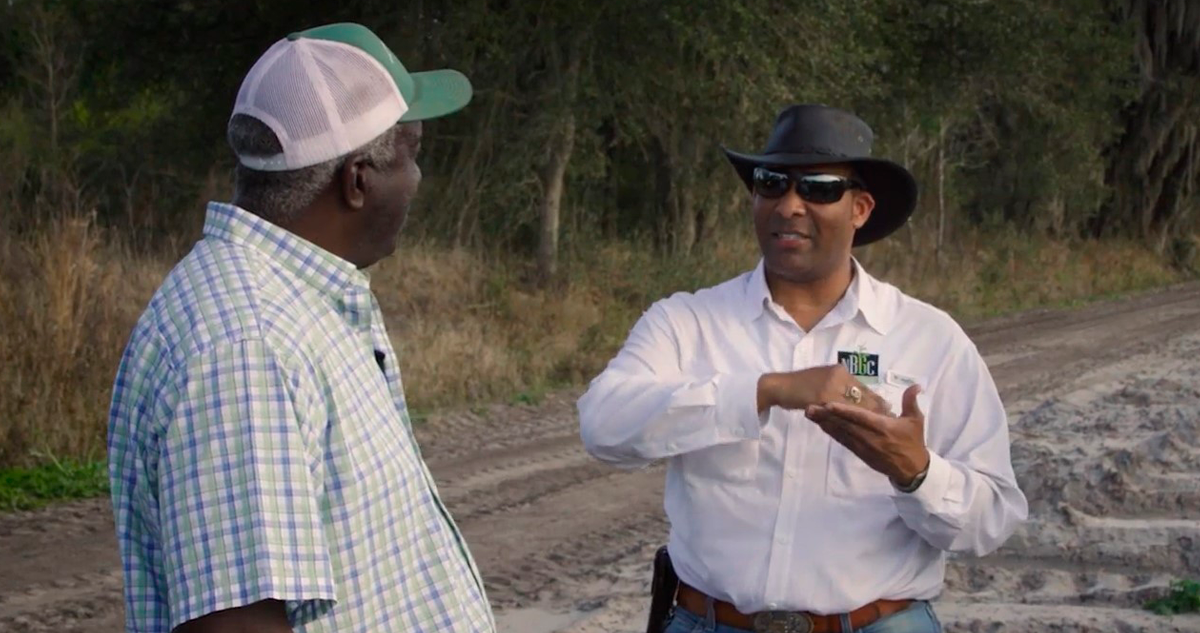James Singleton took a risk by becoming a farmer. He was 50 years old when, in 1979, he retired from his career as a schoolteacher and purchased 80 acres of farmland in Hastings, Florida. The cabbage crops he grew there generated little profit. But as
the son of peanut and corn sharecroppers, farming his own land was always a dream.
Frito-Lay helped him turn his dream into reality. Another local grower first introduced James to the company in 1982 — the same year PepsiCo launched its Supplier Diversity Program. James converted his acreage to potatoes and sold his first crop
to Frito-Lay that same year. A longstanding partnership was born.
“We’ve been selling potatoes to Frito-Lay ever since,” says James’ son, Steve Singleton, who joined the family business full-time in 1987 and took over following James’ passing in 2010. “To continue the legacy of what
my father started means everything to me.” Singleton & Sons Farms now grows 700 acres of potatoes per year and contracts 85% of them to Frito-Lay.

For Steve Singleton (second from left), wife April and sons,
selling potatoes is a multi-generation family business.
This year marks 40 years of both that relationship and PepsiCo’s Supplier Diversity Program. What started as a $5 million investment into enterprises like the Singletons’ farm has blossomed into nearly $30 billion worth of spending with diverse
suppliers across PepsiCo’s convenient food and beverage businesses. That includes farmers, businesses creating packaging materials, marketing agencies and more.
“As one of the leading convenient food and beverage companies in the U.S., we have a responsibility to leverage our size and reach to help address the systemic barriers that too often limit or exclude diverse suppliers from developing and expanding
their businesses,” says Melani Wilson Smith, PepsiCo Global Chief Procurement Officer. “Working with diverse-owned businesses is one of the more important ways we can help build a more inclusive supply chain which, in turn, strengthens
the communities where we operate and yields greater value for our consumers and customers.”
As part of its Racial Equality Journey commitments, PepsiCo spent nearly $500 million with Black and Hispanic suppliers last year alone — part of the more than $1 billion the company spends annually across businesses owned by Black, Hispanic, Asian,
LGBTQ+ and Native American people, people with disabilities, U.S. Veterans and women. PepsiCo’s Supplier Diversity Program aims to sustain those businesses’ economic contributions by helping to remove barriers to accessing capital, expanding
the company’s supplier base, increasing spend, providing mentorship and deepening engagement with advocacy organizations.
Working with diverse-owned businesses is one of the more important ways we can help build a more inclusive supply chain which, in turn, strengthens the communities where we operate. — Melani Wilson Smith, PepsiCo Global Chief Procurement Officer
PepsiCo is executing that multi-pronged approach across several supplier categories but has placed emphasis on diversifying its base of agricultural suppliers. The company has nearly doubled its spend with Black growers last year and continues to apply
learnings from partnerships with organizations such as the National Black Growers Council (NBGC), whose mission is “to improve the efficiency, productivity and sustainability of Black row crop farmers,” says NBGC executive director Dr.
Hazell Reed.
Fewer than 1.5% of all U.S. producers are Black, according to the USDA’s 2017 Census of Agriculture. “We’ve long faced challenges such as access to good farming land, capital and information,” Reed says. The NBGC is supporting
those growers and trying to increase their numbers by creating a network where they can learn from each other about financial best practices, the latest equipment and technology, and the most sustainable ways to grow crops including potatoes, cotton,
corn, wheat and soybeans — all things that can help them sell their products to companies like PepsiCo.
“As farmers in underserved communities, we typically find ourselves isolated and concentrated,” says P.J. Haynie, a fifth-generation farmer from Virginia and board chairman of the NBGC. “Having relationships and mentors, and knowing
you can call another grower to share information that will help your operation — whether they’re 100 miles away or 1,000 miles away — is a priceless tool in our toolbox. Companies like PepsiCo understand that.”

Board chairman P.J. Haynie and members of the NBGC visited Singleton & Sons Farms earlier this year.
Steve Singleton says PepsiCo has always provided an agronomist he can call if he has a problem with a crop or wants to learn how best to grow a new variety of potato. That’s part of what has made the Singletons’ relationship with Frito-Lay
so fruitful over the past 40 years, and why Steve hopes it continues for the decades ahead.
“It made my father proud that one of his sons wanted to continue what he worked so hard to start,” Steve says. “It’ll mean the same thing for me for my sons to carry on.”